Depression is a leading cause of disability and by 2050 it is set to become the single leading cause of disorder-related disability worldwide. Estimates from the WHO suggest that up to 4.4% of the global population suffer from depression, with 3.6% suffering anxiety disorders.
A rise in the prevalence of depression and anxiety occurs during adolescence, with a one-year estimated prevalence of 4-5%, and more than half of all adolescent suicides being directly attributable to depressive disorders. In Colombia, national surveys indicate that anxiety disorders are the most frequent, with an estimated prevalence of 15-20% and reports as high as 31.9% for individuals between 13 and 18 years of age. Furthermore, the ENSM-2015 reported a life prevalence for adolescents aged 11 to 17 years of 4.8% of social phobia; 0.2%, panic attacks, and 0.6%, generalized anxiety, with disorders more frequent in females compared to males. Similar to the rates of anxiety, depression is also common for people aged 12 to 17 years. Using the Self-reporting Questionnaire (SRQ), it was found that 13% of adolescents have anxiety or depression.
On the other hand, DIALOG+ is an app-mediated intervention that has been associated with more favourable mental health outcomes. This method aims to rate the patient’s satisfaction with life and treatment and their need for additional help in every meeting with their clinician. Given that DIALOG+ is an app-based method, the results are stored and can be compared with previous ratings. Additionally, the intervention involves training of clinicians and provide solutions for concerns raised by the patient. However, even if these tools may provide benefits, their usefulness depends on proper use. Hence, the cultural adaptation and the validation of the users are mandatory to adequately implement the method in clinical care.
The overall aim of the project is to improve mental health outcomes for adolescents with depression and anxiety in Colombia by adapting an existing effective intervention (DIALOG+).
The study is being conducted in three areas of Colombia:

Javesalud
Bogota

E.S.E Salud del Tundama
Duitama

Tindal
Bogotá
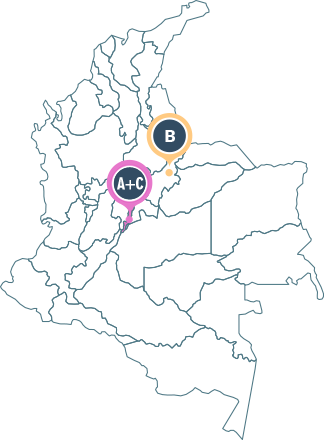
Work Packages

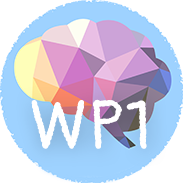
Aim: To adapt an effective low-cost intervention called DIALOG+, so that it is suitable as a treatment for adolescents with depression and anxiety.
Focus groups
WHAT: We will complete a total of eleven focus groups (with 3 adolescents, 3 clinicians, 3 teachers and 2 parents), with 4-8 participants per group.
WHO: Adolescents living in Bogota or Duitama, aged 13-16.
Clinicians working with adolescents in Bogota or Duitama.
Parents or legal guardians of adolescents (aged 13-16), living in Bogota or Duitama.
Teachers working in Bogota or Duitama, who teach adolescents.
WHY: To ask about the overall suitability and acceptability of the DIALOG+ intervention, including any adaptions that are necessary to make it suitable for adolescent treatment of anxiety and depression.
Pilot trial
WHAT: A pilot using the current DIALOG+ intervention monthly for 3 months.
WHO: Twenty four adolescents living in Bogota or Duitama, aged 13-16 years old, who are currently experiencing depression and/or anxiety. Eight clinicians who are regularly working with adolescents in Bogota or Duitama, and who have no plans to leave their current post within the next three months.
WHY: After clinicians used DIALOG+ with adolescent participants for 3 months, we will interview both the clinicians and adolescents on their experiences of using the DIALOG+ intervention, including any adaptations that are needed.
The results from both the focus groups and pilot study will lead to the adaptations to DIALOG+. We will call the new adaptation for adolescents DIALOG-A. This will then be tested in the next phase of the study.
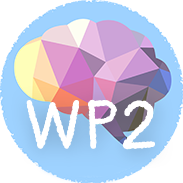

Aim: Assess the feasibility and acceptability of the new intervention DIALOG-A.
Exploratory Randomised Controlled Trial
WHAT: Once we have made the adaptations to DIALOG+ to make it suitable for the treatment of anxiety and depression for adolescents, we will test the new DIALOG-A intervention in an exploratory randomised controlled trial (RCT).
WHO: In total we will recruit 90 adolescents, and 18 clinicians (5 adolescents per clinician). We will randomise 12 clinicians (60 adolescents) to the DIALOG-A intervention group. Here they will use DIALOG-A monthly, for a six-month period. In the treatment as usual (control) group, we will recruit 6 clinicians (30 adolescents) who will provide their usual treatment for a period of 6-months.
WHY: To see whether DIALOG-A is effective, we will ask adolescent participants in both groups to complete baseline questionnaires, including clinical measures of anxiety and depression, quality of life, mental health symptom levels, social support, empowerment, self-esteem, and economic outcomes. They will then complete these again at 6-months (at the end of the DIALOG-A intervention) and 9-months (3 months after the end of the DIALOG-A intervention). The results from both groups will then be compared, to see if DIALOG-A is effective in improving mental health outcomes for adolescents with depression and anxiety.
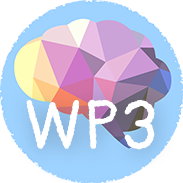
Aim: Develop an implementation strategy to promote the uptake of the DIALOG-A intervention in routine practice to improve the health outcomes of adolescents with depression and anxiety.
Qualitative interviews
We aim to interview 20 adolescents who received the DIALOG-A intervention, and all 12 clinicians who delivered it. The interviews will focus on the experience of receiving or delivering the DIALOG-A intervention and to identify potential barriers and facilitators to implementation on a wider scale.
Quality improvement training
Following analysis of the interviews, and identification of strategies to promote implementation, we will provide training to stakeholders to promote the implementation of DIALOG-A as a treatment for adolescent depression and/or anxiety in Colombia.
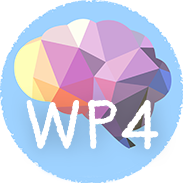

Aim: To encourage leadership and creativity of a group of six leader adolescents.
WHAT: A participatory arts-based project using social-emotional learning methodology will capture the adolescents’ coping mechanisms to face emotional distress before and during the COVID-19 pandemic through audio-visual and creative writing tools.
WHO: Six adolescent participants (aged 14-18) will be trained on basic audiovisual arts, communication, and creative writing. Each adolescent communicator will in turn interview twelve to fifteen adolescents (aged 12-22) each one about their coping mechanisms to face emotional distress during the COVID-19 pandemic.
WHY: To focus on their experience of depression and anxiety, living in fragile neighbourhoods with multiple stressors and help-seeking, as well as the experience of developing a voice through research.
A book, an art exhibition, and a short film will be created with the purpose of disseminating the learning and creative process of the group of six leader adolescents.